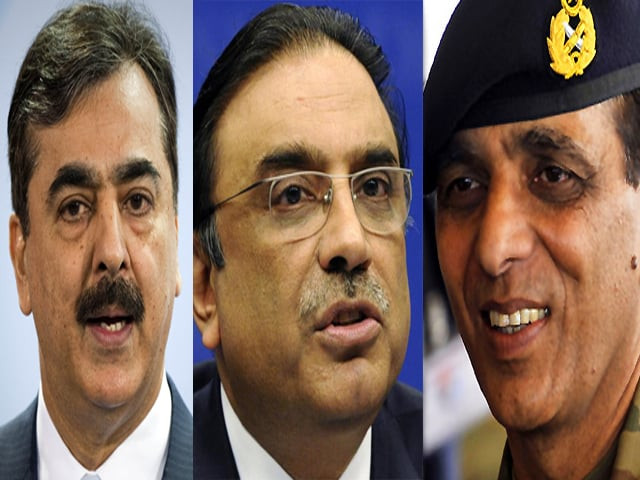Memogate unfolding
In Pakistan, when there is a terrorist threat to one’s life, it should be taken seriously.

The federal government in its deposition says the honourable court should not hear the case but wait till a parliamentary committee has completed its inquiry into the memogate affair. It has reiterated the position taken by Husain Haqqani that no one in the government and its bureaucracy was involved in the preparation of the memo sent to Admiral Mullen. It has also made reference to the latest revelation in the British daily, The Independent, that before the affair of the memo, ISI chief General Pasha had toured the Arab states friendly to Pakistan asking for their ‘approval’ for the removal of the PPP government in Islamabad.
This last bit of information was buried in the cell phone trail of the memo itself and had contributed to Mansoor Ijaz writing against the Pakistan Army in a British daily. So now we have two pieces of evidence: one against former Ambassador Haqqani and the PPP leadership, which the ISI chief has investigated and has found to be genuine; the other against the ISI chief himself which remains uninvestigated. In one case, the presumed culprit in Washington has been made to resign; in the other, the accused in the cell phone record is still in office, armed with de facto powers, together with General Kayani, to run crucial areas of the country’s domestic and foreign policy.
Prime Minister Yousaf Raza Gilani has explained President Zardari’s medical examination abroad by saying that he was not safe in Pakistan, that he had avoided going to hospitals in the country because of a credible terrorist threat. He also added that if his government is removed unconstitutionally, there will be no elections ‘in our lives’. On the first count, some misplaced sarcasm from our TV anchors should be ignored. In Pakistan, when there is a terrorist threat to one’s life, it should be taken seriously and there is always the possibility that it comes from the non-state actors who take their orders from certain centres of power in the country.
The political scene is as murky as ever. The opposition wants President Zardari’s ouster by whatever means before his term is out. The ruling alliance has held after a period of dangerous inter-party quarrels in which the PPP’s allies have either left the coalition or, in one case, actually asked the army to topple the government. The parliament is squarely behind the positions taken by the army on terrorism and relations with the US. The ANP, which gave evidence of consistent support to the PPP, is now sniffing the wind for new contingencies, including a removal of the government at the centre. The new ally in PML-Q has always been fragmented in its loyalty and will arguably join the MQM and the ANP if they decide to heed the toppling signals.
The case for treason against the elected government that many hope to extract from the Supreme Court has become less than open and shut. The government has yet to complete its mandated five years; the two army officers deposing against it are on extensions after retirement. This is not the time for a regime change.
Published in The Express Tribune, December 17th, 2011.














COMMENTS
Comments are moderated and generally will be posted if they are on-topic and not abusive.
For more information, please see our Comments FAQ